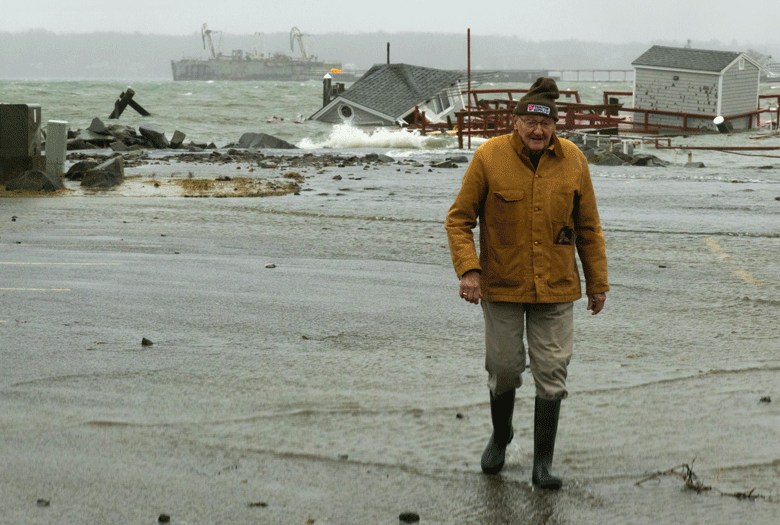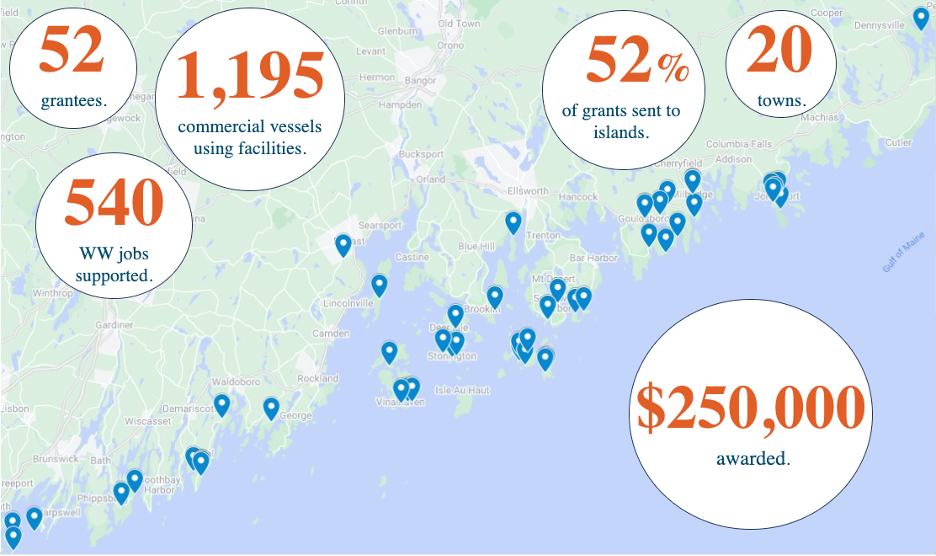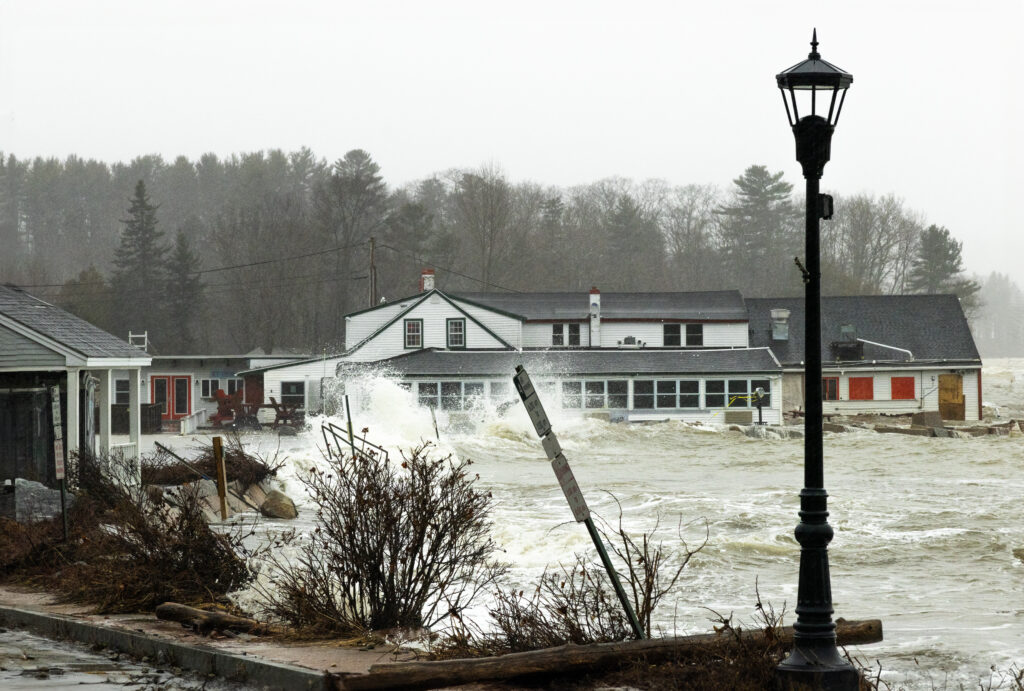January’s storms tested the resilience of Maine’s coastal communities like no other time in recent history. During the weekend after the Jan. 13th storm, Island Institute’s team quickly decided to expand and redirect its Business Resilience grant program toward providing storm response grants to help rebuild critical coastal infrastructure.
Maine’s wharves, piers, and other landing sites are the connecting point between our fishery and a global market for Maine’s sea products. According to a 2023 report prepared for the Seafood Economic Accelerator for Maine, our state’s seafood sector contributes more than $3.2 billion in total economic output, supports more than 33,300 jobs, and all that benefit to our state relies on the roughly 20 remaining miles of working waterfront.
Within one week after the storm, Island Institute had received applications and started sending checks to the owners of wharves in the most highly impacted areas of the coast. It was important to act quickly because although it was still winter, the fishing season was steadily approaching, and it would take months to recover from the damage caused.

Another reason we wanted to act quickly to support these communities was simple: Hope. These wharves aren’t just the places fishermen and buyers rely on, they also represent the livelihoods of families throughout the community. When you see those landmarks broken and toppled over, it’s hard not to feel the same way too. With these early grants, we wanted to help pick up those who were feeling knocked down and jumpstart the recovery process.
In total, Island Institute awarded $250,000 in grants that were funded entirely by our donors and supported 52 grantees in 20 towns from Chebeague to Pembroke. These grants supported 540 working waterfront jobs and 1,195 commercial fishing vessels that rely on these wharves and businesses. Twenty-seven of these grants were given to applicants from island communities and most of those were unbridged islands.

As our team spent the months after the January storms talking with grant applicants and other community members, we started to understand how these storms were having a ripple effect throughout the community. State agencies and legislators were looking for ways they could help as well and asked Island Institute for input on what we had learned. Through the process of advising and updating policymakers, we saw the formation of LD 2225, a bill to direct $50 million in state funding to support the rebuilding of coastal infrastructure. We’re glad to say that in April this bill passed through the legislature and was signed into law. This historic funding was a sign of widespread support throughout the state legislature for our coastal communities.
While Maine looks to the future, the resilience of its coastal communities becomes paramount in preparing for the challenges posed by climate change and more frequent storm events. The proactive measures being implemented today, such as Island Institute’s significant funding for wharf and waterfront restoration, paired with state and federal funds, are pivotal. These efforts signify a comprehensive strategy to bolster not only the immediate recovery needs but also the long-term sustainability and resilience of Maine’s coastal infrastructure. By focusing on enhanced durability and adaptability, Maine is setting a standard for coastal states, ensuring that its marine economy—and the communities that depend on it—remain robust and responsive to the environmental and economic challenges of today and the coming decades.


